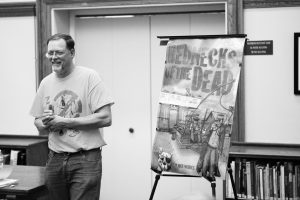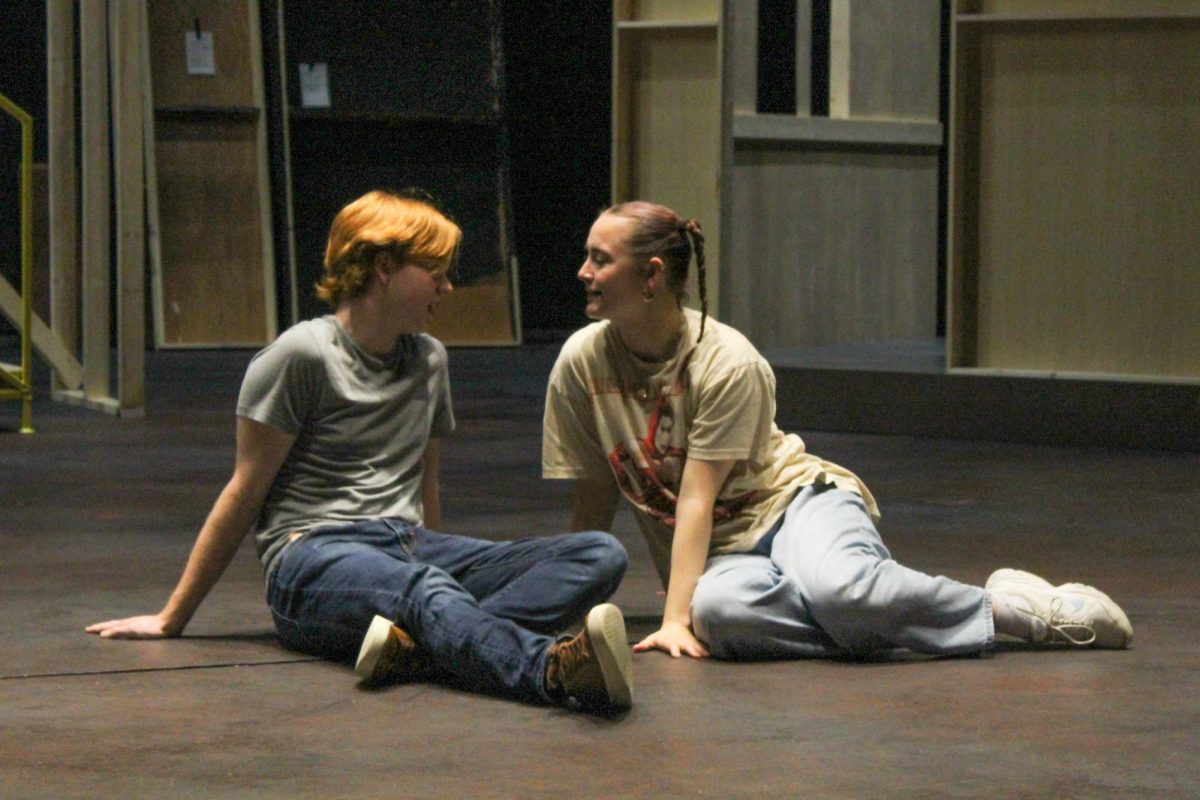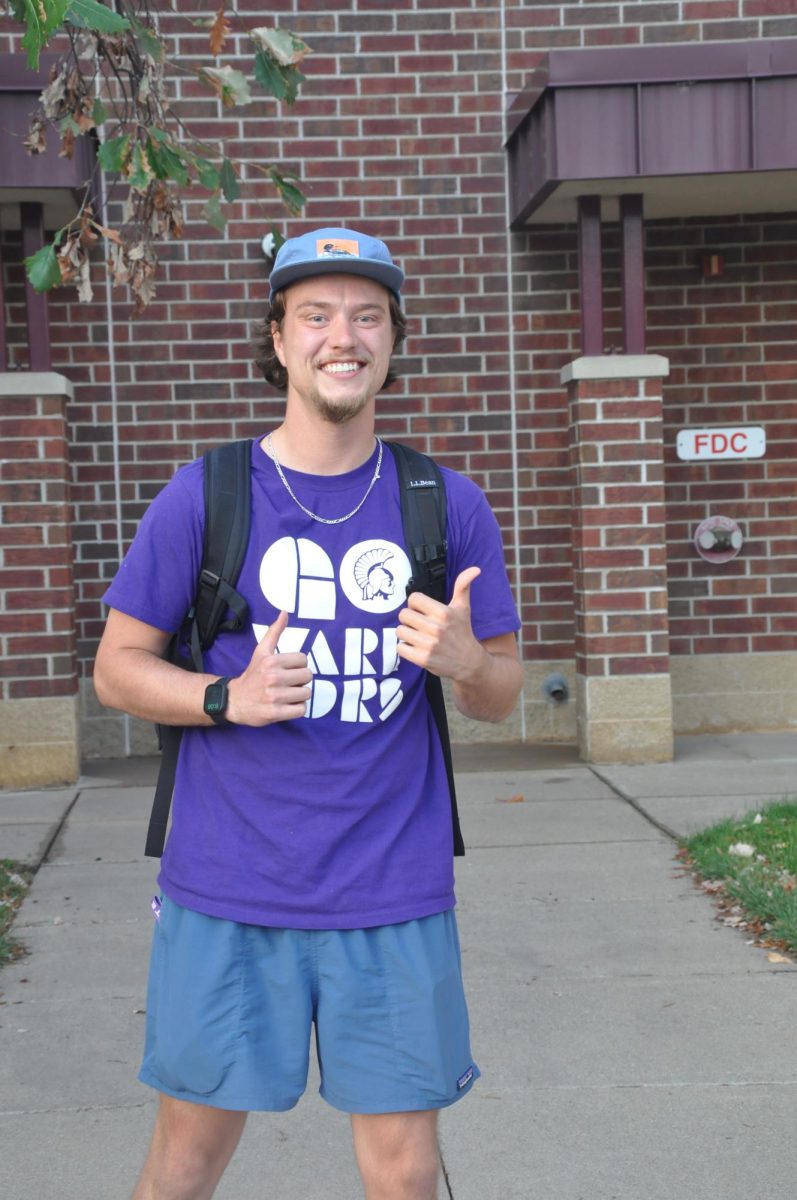
Abigail Derkson/ Winonan
Survivalist Nick Nichols prepared for the worst. As a sustainability coordinator in La Crosse County, Wis. and former Marine, Nichols said he had always been interested in end-of-the-world situations.
His self-published book, “Rednecks of the Dead,” dealt exactly with these types of situations.
At a reading at the Winona Public Library on Thursday Oct. 29, Nichols read from the beginning section of his book where the main characters, Doc and his daughter Kate, were aided by survivalists after a zombie apocalypse.
The inspiration for the novel, Nichols said, came from watching zombie movies with his sons. They would watch and pick them apart for what the characters should have been doing. He said he ultimately wrote the novel because he wanted to tell a story people would enjoy.
“Zombies are hot,” Nichols said at the reading. “Everyone loves ‘The Walking Dead.’ All I’m trying to do is tell a good story.”
Nichols set “Rednecks of the Dead” in Little Falls, Minn. The cover of the book referred back to Winona, as well. On the cover there are two shipping containers serving as a gate to the “Zombie Free Zone,” where Doc and Kate travel with the survivalists. One of the containers read, “we know shipping,” while the second container read, “Winona shipping.”
“It’s a toss back to my hometown,” Nichols said.
In his desire to tell a good story, Nichols said he drew from everyday life. Nichols said he worked as a sustainability coordinator in La Crosse County and was concerned with energy and waste. Sustainability was more than his job; it was a part of his life. At his home he has a solar electric and water heating system, garden beds and chickens he raised. The theme of sustainability was one he said he tried to include in his novel, as the survivalists in the group not only survive but also thrive after the apocalypse.
Not only did Nichols draw from his current life experiences, but he also said he drew inspiration from past experiences, particularly his involvement in the United States Marine Corps.
“The Marine Corps taught me that you can’t survive without support,” he said. He continued and said the Marine Corps taught him how to adapt and survive, which he included in his book.
“I grab pieces of different people and situations that fit what I need,” he said.
Often times, the characteristics of people in his life model a character in his book. He also said there were parts of his personality in the main character, Doc, as well as in the main villain, redneck survivalist Tit.
Despite the zombies in the story, Nichols said zombies were not the primary point of the story. The real story, he said, was of the survivalist community the main characters enter. Nichols said his story was one where the evil rested not in the zombies but in the leaders of the survivalist camp.
Nichols said he tried to write from what he knew, to draw from the experience that everyone has a dark side.
“It’s about a guy on his last leg who finds hope,” Nichols said, “but his thoughts of safety are not safe. The evil is not the zombies, but the people who pick him up.”
The idea of evilness and survival could be seen also in AMC’s hit show, “The Walking Dead,” where a police officer and others attempted to survive a zombie apocalypse.
For senior Susan Jacobsen, the appeal of “The Walking Dead” and other zombie related content was not in the zombies.
Jacobsen said, “I like the survivalist aspect of it. The zombies are still an issue, but they’re almost more of a background because it focuses so much on how the characters try to survive.”
Though the show has graphic violence, Jacobsen said she liked it because of the interesting, complicated characters. She said she liked the show “The Walking Dead” so much because “it shows human nature and how people theoretically respond to disasters.”
Jacobsen described the show as her “guilty pleasure.”
“It’s uncanny that you can be repulsed and intrigued by something simultaneously,” Jacobsen said.
Nichols said he hoped people would be interested in the story he told. While feedback came mostly from family and friends, Nichols had been unsure about how the public would feel about his work. One of his aunts had said she was not sure if she would like the book due to its subject matter, but he said he wanted people not to “judge a book by its cover.”
“Anyone who’s into a good story and likes to cheer for an underdog should pick this up,” Nichols said.

































































